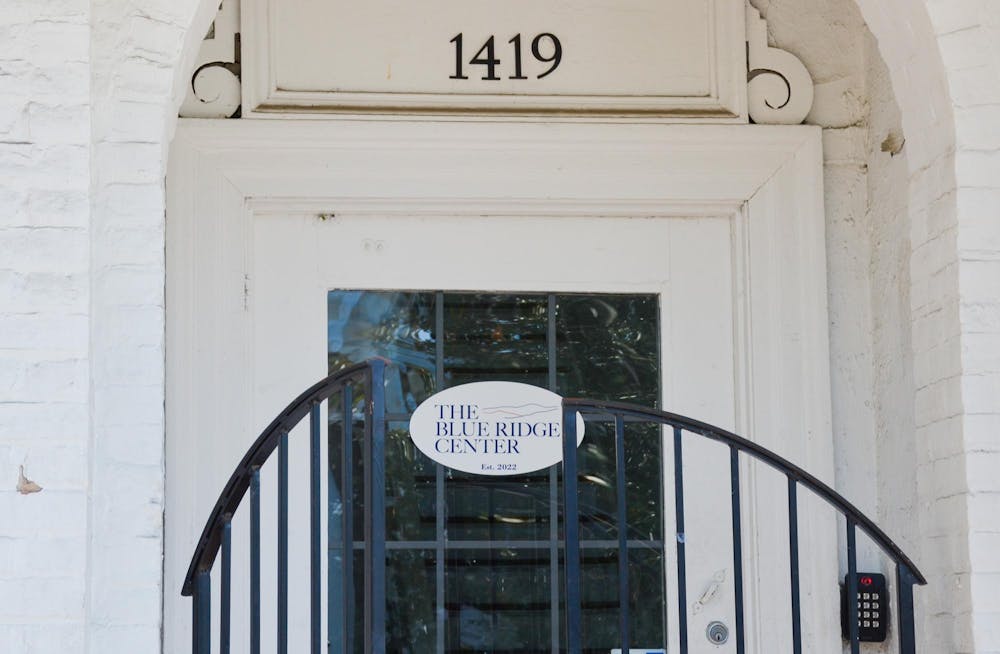The Blue Ridge Center hosted Sean Nelson, international lawyer for the Alliance Defending Freedom, who spoke to University students Monday evening about the global implications of blasphemy laws.
Nelson defines blasphemy laws as rules that try to coerce religious belief. These often punish people for criticism or expression viewed as disrespectful toward a religion. He said these laws raise the need for an ongoing fight to protect freedom of religion and expression.
Based in Washington, D.C., Nelson works with the ADF’s international team, which focuses on fundamental freedoms including those relating to religion, speech and parental rights in regions with severe religious persecution. Nelson explained that one of the organization’s primary goals is the global repeal of blasphemy laws.
While Nelson said that defenders of blasphemy laws often argue that they safeguard a nation’s cultural identity, they are inherently censorious and infringe on the right to free speech and religious freedom.
“Blasphemy laws continue today to be wielded, to throw people in jail or kill them in many places around the world,” Nelson said. “Societies in the West and the U.S. need to cherish, protect and strongly defend the rights to freedom of religion and freedom of speech, and not let ideas that are similar to blasphemy laws creep into our laws and our culture.”
Nelson largely devoted his discussion of blasphemy laws to case studies, including that of Yahaya Sharif-Aminu, a young Sufi Muslim musician in Nigeria who has been imprisoned since March 2020 for allegedly blasphemous song lyrics shared on WhatsApp. Sharif-Aminu’s case, which is currently before the Supreme Court of Nigeria, could overturn the death penalty for blasphemy in one of only seven countries where such laws carry capital punishment.
“If the court upholds [the prosecutor's] side … they’ll execute [Sharif-Aminu] publicly,” Nelson said. “So that just gives you a glimpse of where support for blasphemy laws leads — death for something as simple as song lyrics.”
According to Nelson, blasphemous laws carry punishments that exist on a wide continuum, from death sentences in countries like Nigeria to heavy fines and restrictions in nations like the United Kingdom. He gave another example of an extreme act within this continuum in Nigeria – Deborah Emmanuel, a Christian Nigerian college student, was beaten to death and set on fire by her classmates in 2022 after a WhatsApp exchange was deemed blasphemous.
On the other end of the spectrum, the U.K. enforces lighter sanctions for those who violate blasphemy laws. Nelson highlighted Army veteran Adam Smith-Connor, who was fined after bowing his head and clasping his hands near an abortion clinic.
According to Nelson, Smith-Connor became the first person to ever be convicted in the U.K. for silent prayer, constituting what Nelson called the U.K.’s first instance of a “thoughtcrime” — Smith-Conner did not speak, but his actions were enough to warrant a fine. Nelson said that this anecdote demonstrates how even democratic societies like the U.K. have been policing religious expression. He emphasized that protecting freedom of speech requires preserving open dialogue, even if such dialogue may cause disagreement.
“We believe that every person, no matter their faith or background, has the God-given right to live and speak the truth, and that includes the right to search for the truth freely, to discuss it openly and to attempt to persuade others,” Nelson said. “That kind of discussion simply cannot be had without the risk of offending people.”
Second-year College student Shelby Eliasek attended the event at the recommendation of her commercial law professor. Elisak said that she read about the U.K.'s silent prayers in the news, but initially did not understand the severity of the situation from a legal perspective. She also discussed how her religious identity shaped her own perception of the event.
“I care a lot about it as a Christian, because I want to make sure that I [always] have the ability to share my thoughts with others,” Eliasek said. “[It] makes it really important to me to make sure I hear out other people’s perspectives too, and not disregard them just because they do not work with my own.”
Nelson concluded the event by warning students that censorship laws do not just silence individuals but reshape entire societies. He urged students to see the fight against blasphemy laws as a matter of faith and freedom, reinforcing that direct coercion is the goal of these governments.
“A lot of people will not want to go through [this] kind of thing and so they’ll say, fine, I’ll delete the post, which is exactly what the establishment wants,” Nelson said. “They want to limit what people can hear … what people can believe and they want to use force.”







